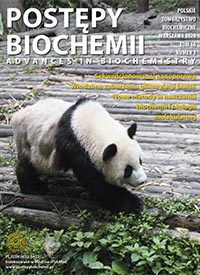Introduction of new didactic methods and student-oriented teaching in the small course "Biochemistry with elements of chemistry"
DOI:
https://doi.org/10.18388/pb.2020_339Abstract
Medical studentsâ active involvement in the process of learning and acquiring the knowledge allow to develop passions and skills. The aim of learning should be to increase the number of students involved and satisfied with the learning process. Positive results can be achieved by creating attractive and accessible conditions for students to learn. The search for techniques that increase student involvement, the introduction of new teaching methods and student-oriented education should be a permanent element of modern teaching.
Short courses, particularly with a small number of participants, pose certain organizational challenges. The students start the course often with significantly different initial basic knowledge and background. Additionally small number of students highlights their different expectations. In order to interest all students, a number of modern, active teaching methods should be implemented and applied. Thus we ultimately will achieve the result in increased students satisfaction with the simultaneous achievement of the intended learning outcomes within the course. Moreover one of the most important goals of the course is for the student to acquire such skills and knowledge that will be future-job useful for them.
The aim of this article is to describe the changes planned in the course "Biochemistry with Elements of Chemistry" for Emergency Medical Services. The article focuses on presenting proposals for educational techniques, the application of which will create conditions for improving and equalizing student learning experience. The planned modifications are expected to increase the satisfaction of educators from teaching and students from learning. The basic change in the course concept will be the transition from the general transfer of knowledge in form of information presentation, to student centered learning and their active participation in the learning process. It is planned to introduce remote (on-line) teaching using e-learning platforms, and available online interactive teaching tools such as polleverywhere (https://www.polleverywhere.com/) or perusall (https://perusall.com/inactivity). Moreover, Case based learning, activation techniques embedded in the context of the future emergency services profession, such as role-playing, critical analysis of results or reporting, will be introduced.
Downloads
Published
Issue
Section
License
Copyright (c) 2020 Advances in Biochemistry

This work is licensed under a Creative Commons Attribution 4.0 International License.
All journal contents are distributed under the Creative Commons Attribution-ShareAlike 4.0 International (CC BY-SA 4.0) license. Everybody may use the content following terms: Attribution — You must give appropriate credit, provide a link to the license, and indicate if changes were made, ShareAlike — If you remix, transform, or build upon the material, you must distribute your contributions under the same license as the original. There are no additional restrictions — You may not apply legal terms or technological measures that legally restrict others from doing anything the license permits.
Copyright for all published papers © stays with the authors.
Copyright for the journal: © Polish Biochemical Society.






